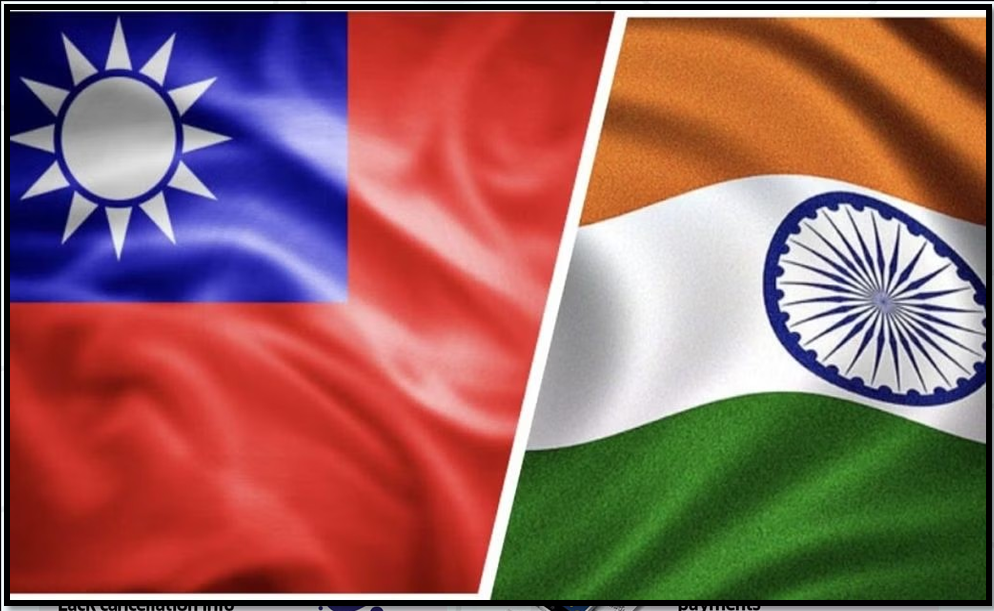CHIP DREAMS: TAIWAN-INDIA COLLABORATION ON CHIP FABRICATION
Syllabus:
GS 3:
- India and its Neighbourhood- Relations.
- Bilateral, Regional and Global Groupings and Agreements involving India and/or affecting India’s interests.
Why in the News?
- India and Taiwan are focusing on a strategic partnership in chip fabrication. Recent developments include Powerchip Semiconductor Manufacturing Corp (PSMC) partnering with Tata Electronics, signaling progress despite challenges.
- This collaboration is significant amidst global shifts in supply chains due to US-China tensions.
Source: Global giving
Overview:
- Strategic Partners: Taiwan and India are poised to be strategic partners in chip fabrication, with Taiwan leading globally and India eager to enter the domain.
- Challenges Faced: Despite strategic alignment, the partnership faces challenges on the ground, limiting progress in chip fabrication investments in India.
- PSMC’s Entry: Powerchip Semiconductor Manufacturing Corp (PSMC) is the only Taiwanese company currently partnering with India’s Tata Electronics, offering technological expertise without equity investment.
- Cautious Approach: Taiwanese companies are cautious, unlike ventures in developed countries where significant equity investment and ecosystem development are involved.
- Government Efforts: The Indian government is addressing industry apprehensions, including the absence of ancillary ecosystems, tech gaps, and talent shortages to attract more investments.
- Future Prospects: Tata Electronics aims to leverage PSMC’s technology for high-volume manufacturing, meeting global and domestic supply chain demands.
Understanding India-Taiwan Relations
|
Current State of Collaboration
- Limited Response: Major Taiwanese chipmakers like TSMC and UMC are focused on investments in developed countries, limiting their involvement in India.
- Heavy Lifting by Tatas: Tata Electronics handles most of the operational responsibilities, despite having no real chip-making experience, posing significant challenges.
- Government Assurance: Indian officials are engaging with Taiwanese counterparts to address concerns and ensure smooth collaboration in chip fabrication.
- Technology Portfolio: The Tata-PSMC partnership provides access to a broad technology portfolio, including advanced and mature nodes for semiconductor manufacturing.
- Supply Chain Resilience: The collaboration aims to enhance supply chain resilience and meet growing domestic demand for semiconductors in India.
- US-China Tensions: Escalating US-China tensions prompt Taiwanese companies to diversify supply chains, with India emerging as a potential alternative destination.
Challenges and Concerns
- Comprehensive Ecosystem: Successful chip fabrication requires a comprehensive ecosystem with suppliers and support systems located nearby, which is currently lacking in India.
- Infrastructure Gaps: Concerns about India’s ability to provide continuous electricity, pure water, and high-grade silicon hinder Taiwanese companies’ confidence in investing.
- Policy Clarity: Taiwanese players express concerns over India’s unpredictable trade policies and the separation of skilling efforts from the nodal ministry overseeing the chip push.
- Multilateral Trade Deals: India’s absence from major multilateral trade deals complicates integration into the global semiconductor value chain, crucial for chip manufacturing.
- Trade Balance Issues: Potential trade imbalances from importing initial inputs for chip fabrication could trigger sudden duty impositions, deterring investments.
- Foxconn-Vedanta Example: The failure of the Foxconn-Vedanta deal raises concerns about India’s ability to successfully execute chip-making projects.
Government and Industry Efforts
- Skilling Initiatives: The Indian government is focusing on skilling initiatives to develop a talent pool capable of supporting the semiconductor industry.
- Incentive Schemes: India’s $10 billion chip incentive scheme has attracted some investments, with efforts to draw more global players into the semiconductor sector.
- Policy Support: Ensuring consistent policy support and addressing industry concerns are crucial for fostering a conducive environment for chip fabrication in India.
- Collaboration Models: Exploring new collaboration models, like the Tata-PSMC partnership, aims to balance technological expertise with operational responsibilities.
- Strategic Alignment: Continued strategic alignment between Taiwan and India is essential for overcoming challenges and achieving mutual goals in semiconductor manufacturing.
- Long-term Vision: Both countries must work together with a long-term vision, addressing infrastructure, policy, and ecosystem challenges to establish a robust chip fabrication industry.
Future Outlook
- Increased Interest: With ongoing efforts, India expects increased interest from global players in chip fabrication investments, enhancing its position in the semiconductor value chain.
- Supply Chain Development: Developing a local supply chain network and training talent pools are critical for supporting semiconductor manufacturing in India.
- Strategic Importance: Taiwan views India as an increasingly important country for collaboration, requiring significant groundwork to realize potential benefits.
- Policy Adjustments: Adjusting policies to support seamless integration of Taiwanese production bases into India’s semiconductor ecosystem is vital for success.
- Global Value Chain Integration: Enhancing India’s participation in the global semiconductor value chain will strengthen its position as a key player in the industry.
- Continued Collaboration: Ongoing collaboration between Taiwan and India, addressing challenges and leveraging strengths, will pave the way for a successful semiconductor partnership.
Conclusion
Strengthening the Taiwan-India partnership in chip fabrication is vital for India’s semiconductor aspirations. Addressing infrastructure, policy, and ecosystem challenges will be crucial. With continued efforts and strategic alignment, this collaboration can significantly enhance India’s position in the global semiconductor value chain.
Source:Indian Express
Mains Practice Question:
Discuss the strategic importance of the Taiwan-India partnership in semiconductor fabrication. Highlight the challenges and opportunities this collaboration presents for India’s technology and manufacturing sectors.
Associated Article:
https://universalinstitutions.com/delhi-and-taipei-just-friends/




